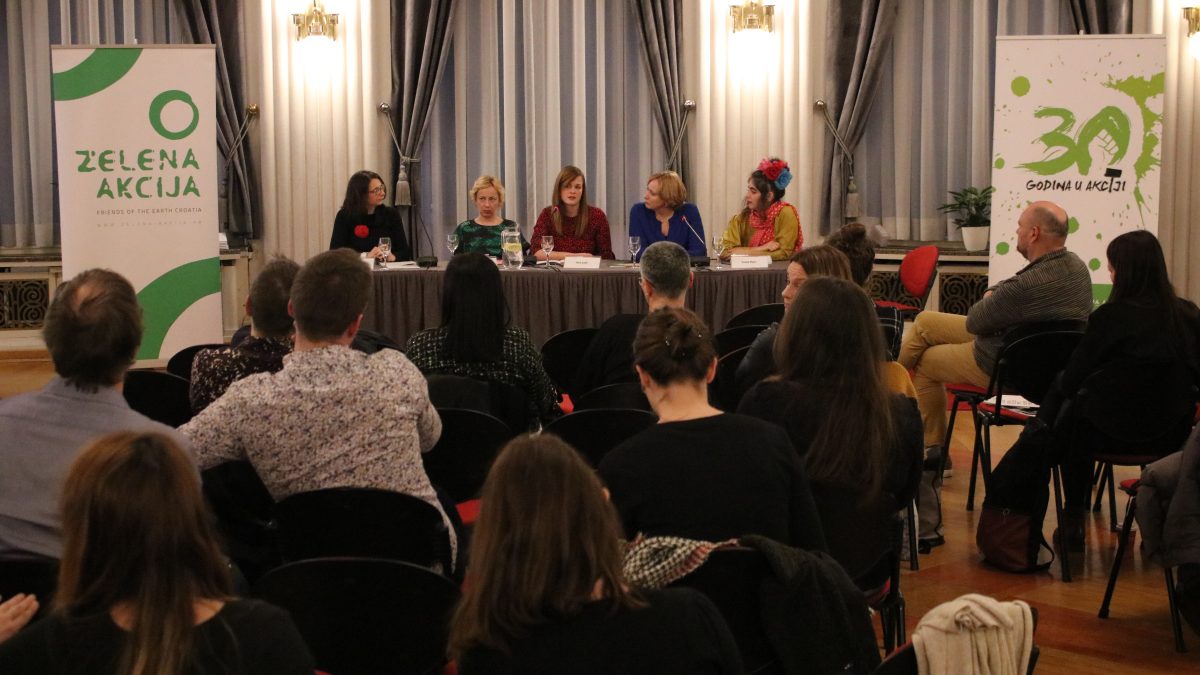With the conference titled “30 Years of Activism, Resistance, and Change,” held on Friday, January 31, Zelena akcija (Green Action) celebrated three decades of its work. Ombudswoman Lora Vidović participated in a panel discussion alongside Associate Professor Danijela Dolenec, Sara Lalić from the Centre for Peace Studies, and journalist/editor Ivana Perić from the H-Alter portal. The panel sought to answer the question: Is the space for activist engagement and media freedom shrinking?
While congratulating Zelena akcija on its anniversary, the Ombudswoman emphasized that, despite various challenges, civil society organizations continue to find creative ways to carve out space for their work. “I believe that the work of Zelena akcija has contributed to raising public awareness about the importance of environmental protection,” she noted, adding that collaboration with NGOs is a key part of her role as an independent human rights institution and the central body for combating discrimination.
A significant number of complaints received by the Ombudswoman come from NGOs and local civic initiatives, particularly in the environmental sector. These complaints address issues such as water, air, and soil pollution, the impact on animals and plants, insufficient noise protection, waste management problems, and electromagnetic radiation—highlighting the harmful effects of environmental pollution on public health. Environmental protection complaints have been steadily increasing, with a nearly fivefold increase in the past year compared to 2013. Many of these complaints also express distrust in institutions, frustration with interactions with relevant authorities, dissatisfaction with the quality of responses, and concerns over the limited or merely formalized opportunities for public participation in environmental decision-making processes.
Civil society organizations play a crucial role in promoting human rights and strengthening democracy by addressing issues that matter to citizens, helping them exercise their rights, monitoring the activities of governments, parliaments, and local and regional authorities, advising policymakers, and demanding accountability from responsible institutions. However, to effectively fulfill this role, it is essential to create an enabling environment for their work. The primary responsibility for ensuring such an environment lies with the state.


